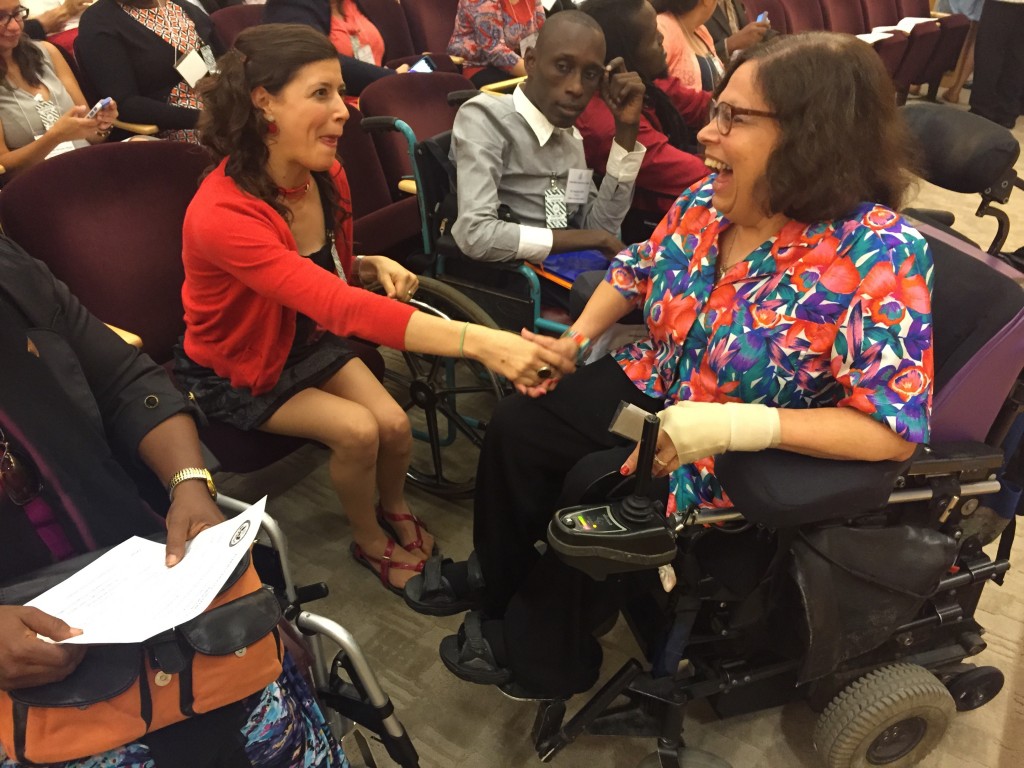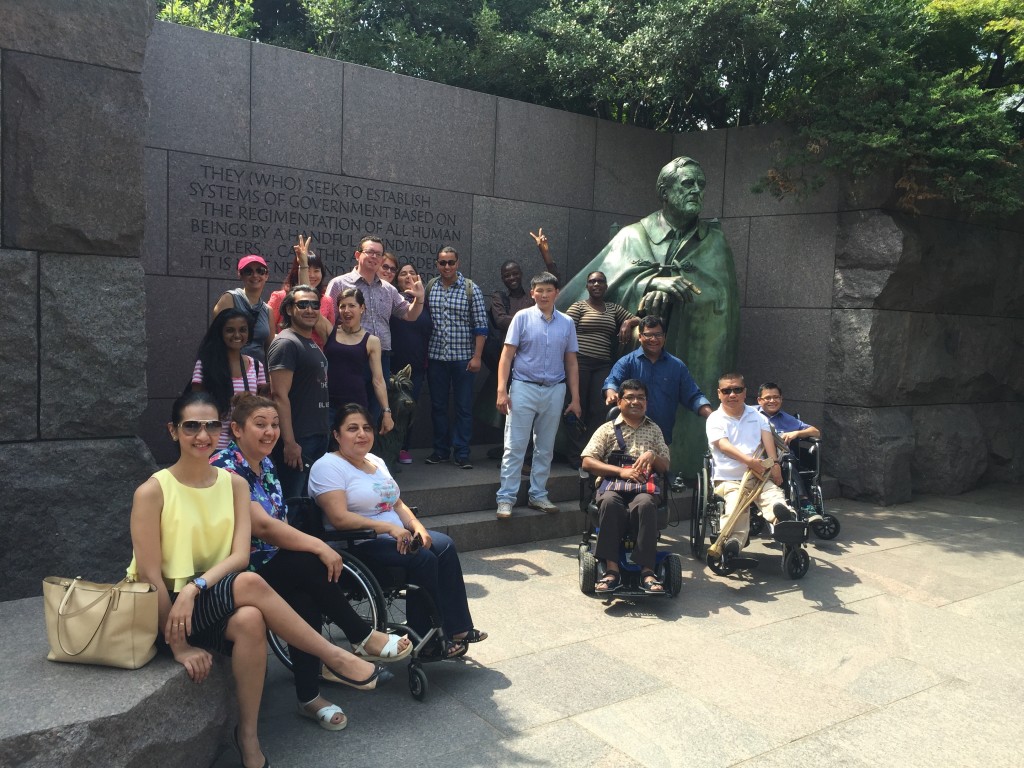Sunday, July 26th marks the anniversary of the signing of the Americans with Disabilities Act (ADA), which for 25 years has provided greater independence and protection from discrimination for millions of Americans. The law has not only helped to make buildings, schools and streets more accessible, but also guarantees citizens living with disabilities equal opportunity for employment and communication aids, promoting a more inclusive America.

In commemoration of the anniversary, President Barack Obama observed that the ADA has facilitated a “new era of equality, freedom and independence” for the nearly 20% of Americans living with disabilities. As we celebrate the anniversary of this landmark piece of bipartisan legislation, it’s worth reflecting on the hard-fought battle for disability rights and continuing struggle to address these issues in many countries throughout the world. Just a few short decades ago, thousands of Americans with disabilities were disenfranchised or locked away in institutions. Even in our nation’s capital, sidewalk curbs impeded wheelchair users, federal buildings lacked adequate ramps, and access to public transportation was practically unheard of. Leading activists in the fight for disability rights echo this sentiment, recalling the staggering lack of accessibility prevalent before this legislation was signed into law by President George H.W. Bush in 1990. In the post-ADA era, the U.S. has taken great strides to provide access and remove barriers for all citizens living with disabilities.
As a U.S. Senator, John Kerry was an advocate of disability rights and served as a co-sponsor of the ADA legislation. Reflecting on his current role as Secretary of State, Kerry noted in a recent editorial in The Guardian that “in too many countries, what we have done in the United States through the American with Disabilities Act is…far from the reality” of what people with disabilities experience around the world, where the stigma of disability has led to children being abandoned or turned away from schools, adults excluded from the labor market and roadways and sidewalks impassible for wheelchair users.

The U.S. Department of State is helping to lead the way on improving disability rights throughout the world by inspiring individuals and governments to “see disability through the lens of equality and opportunity.” From this perspective, the matter of accessibility is more than just a disability issue, but rather an issue of basic human rights. Working closely with Judy Heumann, a lifelong civil advocate for disadvantaged people and current Special Advisor for International Disability Rights, the Department of State has championed a number of initiatives to improve the quality of life for people with disabilities around the world.
In commemoration of the 25th anniversary of the ADA, the Department of State hosted an event last week for IVLP participants in the “Access for All: Enhancing the Lives of People with Disabilities” program. During this session, Judy Heumann and other department officials discussed the history of the disability rights movement, techniques of advocacy and ways in which the international visitors could work together to improve enforcement of existing legislation in their home countries. Additionally, visitors were treated a “Global Comedy Club” show at the Kennedy Center Millennium Stage where they enjoyed comedian Josh Blue’s unconventional and hilarious take on living with disability, along with viewers watching the live-stream broadcast in embassies all over the world.
The ADA affirms the important role of civil society in American democracy and shows how individuals and activist groups working together can not only accomplish the goal of legislative action, but also enduring change. The work of disability rights activists and the ADA helped change the way the world viewed disability issues, prompting other governments to enact their own legislation to provide citizens with equal access and rights. By bringing disability rights advocates from all over the world together, exchange programs can build momentum in ways large and small to change policies, improve conditions, and live up to the aspiration of Access for All.
Check out our video documenting the experiences of this year’s IVLP participants on disibility rights programs:
















